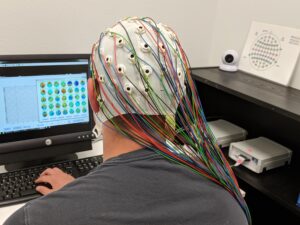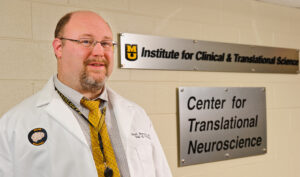Improving social communication skill and ability is one of the primary hopes for autism treatment providers. Progress can be achieved with behavioral treatment such as Applied Behavior Analysis. However, 
Now, Thompson Center researchers are performing a clinical trial on a drug they hope may prove effective in improving social communication among a specific group of people with autism for which other drugs may not previously have been effective.
Dr. David Beversdorf, a professor of radiology and neurology at Mizzou and a researcher at the Thompson Center, is leading a team testing the drug minocycline on children with autism. Minocycline has been on the market for years, used primarily as a drug for clearing up acne. However, Craig Erickson, a professor at the University of Cincinnati, recently found minocycline effective in improving social communication among children with Fragile X syndrome.
“Fragile X is a genetic condition that causes a range of developmental issues, often very similar to autism,” Beversdorf said. “Our hope is that minocycline can function similarly in certain groups of people with autism.”
Biomarkers relating to autism symptoms, including social communication problems, have been found by monitoring brain wave patterns through 
“If minocycline can help improve these EEG markers that are associated with social communication, we hope that means it could be a potentially effective treatment method for some patients with autism,” Beversdorf said. “We have a lot of research left to do on minocycline, but we are excited about taking this promising first step with this clinical trial.”
The clinical trial is currently recruiting participants with autism. If you are interested in participating, contact the Thompson Center research core at (573) 303-8405 or tcresearch@missouri.edu.

